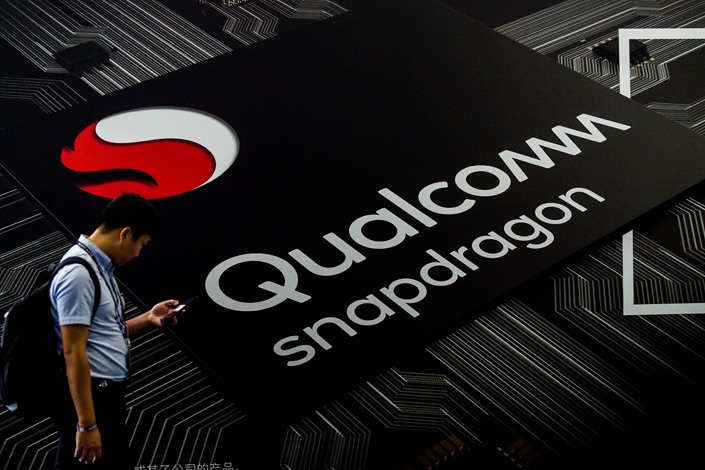Qualcomm Joins List of Firms Approved to Sell Older Chips to Huawei

U.S. telecommunications chip giant Qualcomm Inc. has become the latest tech company allowed to sell some products to Huawei Technologies Co. Ltd., a move analysts said could pave the way for the embattled Chinese giant to return to the global smartphone market as soon as late next year.
Huawei has spent much of the last two years being slowly starved of the key components it needs to make its leading-edge smartphones and telecoms networking equipment, under a highly coordinated Washington-led campaign. But since first banning all U.S. companies from selling to Huawei without a special license last year, Washington has been slowly allowing such sales for non-5G technologies.
Qualcomm confirmed to Caixin on Saturday that it has become the latest to receive such a license to sell some products to Huawei, including some involving 4G technology that is now used in most major countries’ mobile networks. The move follows granting of similar limited permission to the likes of U.S. chipmaker Xilinx Inc., which received a license last year, and Intel Corp. and AMD Inc., which were granted licenses in September.
“It is good news for Huawei and China, but not helpful to Huawei immediately since those 4G chipset models are not what Huawei needs now,” said Jefferies analyst Edison Lee. “Huawei wants to push 5G and thus they need 5G chipsets. But it is a step in the right direction. It shows the U.S. ban on Huawei is not blanket.”
Following the initial U.S. sanctions last year that specifically targeted American companies selling to Huawei, Washington cut off any non-American alternatives as well by threatening to sever their access to U.S. technology. Two targets of that later part of the campaign were Taiwan’s TSMC, which manufactured 5G chips designed by Huawei; and MediaTek Inc., also of Taiwan, which sold its own-designed 5G chips to Huawei.
In anticipation of being cut off, Huawei aggressively stockpiled chips from that pair and has now begun rationing them as it tries to weather the U.S. assault. As a result, the company’s revenue growth and profit margins both dropped sharply in the third quarter, according to Huawei’s latest report released in late October. The company’s third-quarter smartphone sales also plunged by 22%, as it lost its title as world’s biggest smartphone-maker to South Korea’s Samsung Electronics Co. Ltd.
Most recently, sources told Caixin that Huawei is looking to sell its lower-end Honor smartphone brand, which currently accounts for about a quarter of all the company’s smartphone sales. At this point the company has largely retreated from the global smartphone market and is focusing on its home China market.
Huawei traditionally bought most of its high-end smartphone chips from Qualcomm, but then later developed its own chips and was using TSMC to manufacture those. At the same time, Huawei and Qualcomm were embroiled in a series of patent lawsuits, which they finally settled in July. Two months later, Huawei’s rotating chairman, Guo Ping, said the company could resume buying Qualcomm chips if Washington gave the necessary permission.
When it reported its latest results earlier this month, Qualcomm began to include some of the $1.8 billion payment from Huawei that was part of the two companies’ settlement in those results. It also included licensing fees that were part of the settlement, leading some to speculate that the pair believed that Qualcomm could soon get a license to resume selling to Huawei.
Writing in a note before the latest Qualcomm announcement, Jefferies’ Lee said recent developments, including the win by Joe Biden over Donald Trump in the U.S. presidential election earlier this month, were making him “become even more convinced” that both Qualcomm and MediaTek would get permission to resume sales to Huawei. Trump’s administration was the architect of the current sanctions, though previous administrations had also warned of national security threats posed by the Chinese company.
“In that scenario (where Qualcomm and MediaTek can resume supplying Huawei), Huawei would likely come back to the handset market in the fourth quarter of 2021,” Lee wrote.
Contact reporter Yang Ge (geyang@caixin.com)
Download our app to receive breaking news alerts and read the news on the go

- PODCAST
- MOST POPULAR






